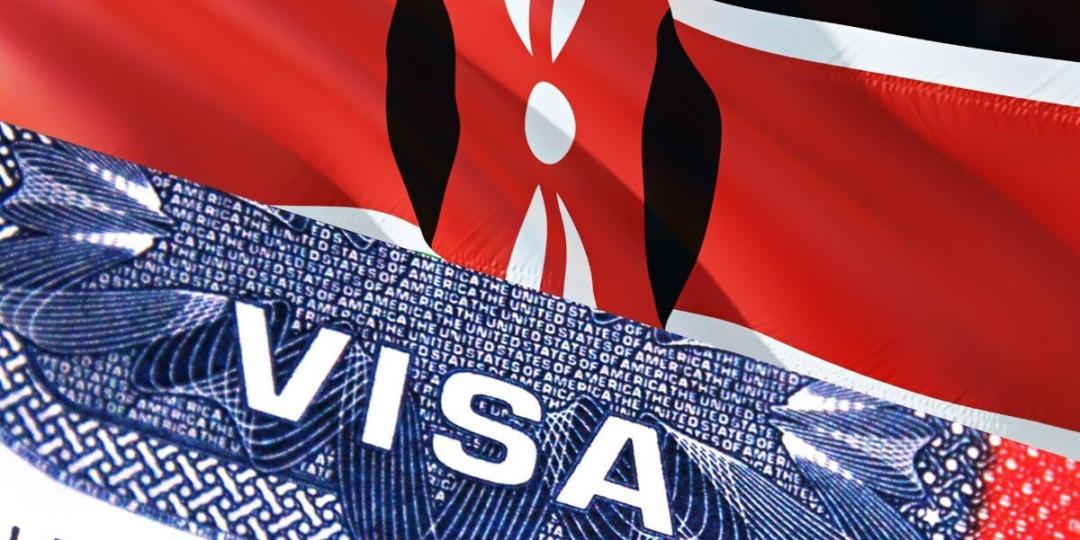Kenya needs to focus on a clear tourism policy and stick to it. This was highlighted by a safari operator following the country’s launch of the new Electronic Travel Authorisation (eTA) system.
The eTA system was officially implemented after the East African country’s announcement that it had scrapped all visa requirements.
However, there has been a lack of clarity around the system – which falls under proposed amendments to the Kenya Citizenship and Immigration Act – and little to no communication on the new system, according to Richard Trillo East Africa Manager at Expert Africa.
He said in a comment to Tourism Update that the lack of consistency in policy implementation had been confusing too.
“This whole launch has been a shambles. No government bodies seem to have any idea what they are doing. Late last year we were advised that visas would be increasing from US$50 to US$100 from January 1 which drove many travellers with trips booked for early 2024 to apply for visas before the cost went up.”
‘So, a visa?’
Trillo added that in mid-December, Kenyan president, William Ruto, made his visa-free travel announcement. which he said had quickly proved to be anything but free, and still very much like a visa.
“Every visitor (including children and infants) now needs their own eTA, whereas visas were previously only required for those aged 16 and over. Meanwhile, the official online visa site seems to be still open for business, for all those travellers who haven't been following every twist and turn. And it doesn't even mention the eTA, much less redirect people to the correct URL and explain that visas are no longer required.”
CNN Journalist, Larry Madowa, agreed with Trillo, posting on the social media site X: “Kenya is now ‘visa-free’ for every human on earth. But you can’t just get on a flight. You have to apply for Electronic Travel Authorization, pay $30 and wait up to three days for approval. So, a visa?”
Zimbabwean journalist Hopewell Chin'ono, was also openly critical of the new system, stating on X: “Dear Africans, Kenya is not telling the truth when it says it is visa-free; it has made travelling more difficult for Africans who didn't need a visa before."
However, the Kenyan government has defended its decision, with Principal Secretary in the Ministry of Interior Professor Julius K. Bitok,highlighting that the introduction of the eTA system was premised on the need to have a “fair, faster and reliable” system that also addressed Kenya’s security and other strategic interests.
Confirming that, as part of the new eTA system, all travellers needed to pay a US$30 processing fee, Bitok said: “Before the scrapping of visas, citizens from 51 countries enjoyed visa-free entry to Kenya, while travellers from 155 other countries were subject to a visa application process at a cost of $50.”
Four fundamental changes
In a media statement issued on Sunday (January 7) Bitok highlighted that the new system had introduced significant changes to the travel and transit experience for foreign nationals visiting Kenya in four fundamental ways:
1. Equal treatment and reduced fees. The entry requirements and applicable payments for all foreign nationals, except for East African Community (EAC) citizens, will now be the same, irrespective of the country of origin. “The visa fee was $50 while the ETA fee for all is $30, thereby ensuring fairness and equality,” said Bitok.
2. Advance passenger information. Previously, travellers from 51 countries were not required to fill out any forms on personal and relevant travel details. There was therefore no means of obtaining data to inform critical decisions and plans around security, infrastructure and insurance needs.
“With the introduction of the eTA, we now have comprehensive data on all visitors, significantly improving our ability to ensure the safety and well-being of both our visitors and citizens.”
3. Reduced processing time. Compared with visa applications, eTA provided for a simple and faster process, said Bitok. “Previously, it took up to 14 days to process visa applications for foreigners from 12 listed countries. The waiting period for this category has now been drastically reduced to a maximum of 72 hours.”
4. Dedicated eTA desk. “To guarantee a seamless experience, we have introduced a 24-hour service desk dedicated to eTA. This will ensure clients are promptly attended to irrespective of the hour, while also taking into consideration the different time zones across the world,” said Bitok.
He added: “We will continue to review and refine the eTA system to align it with our clients’ convenience and to support our commitment to make Kenya a natural home for visitors and investors.”
Bitok said, to date, 9 787 eTA applications had been received. Of these, 4 046 have already been processed while the others are undergoing review on priority basis guided by the travel schedule submitted by each applicant.























